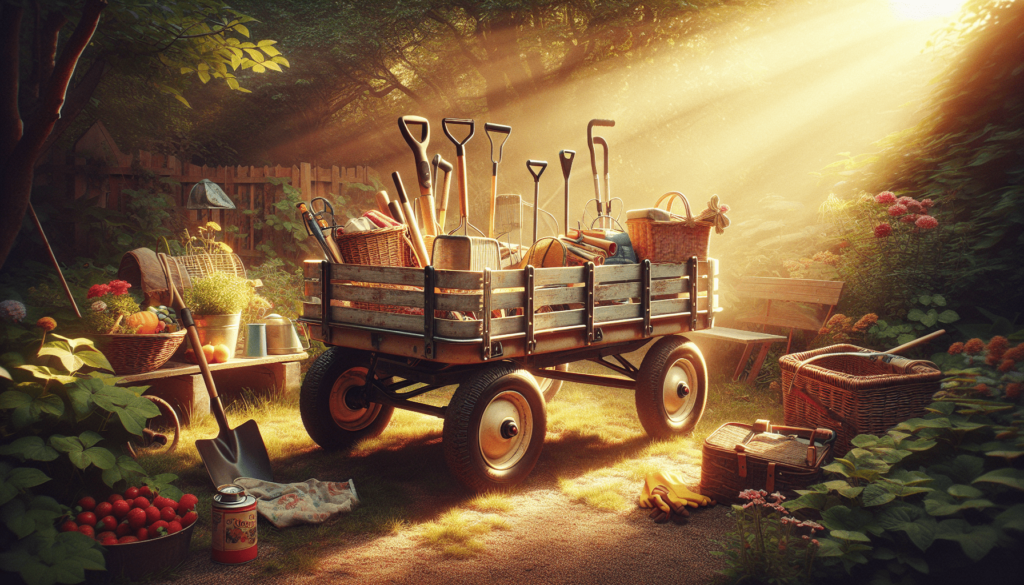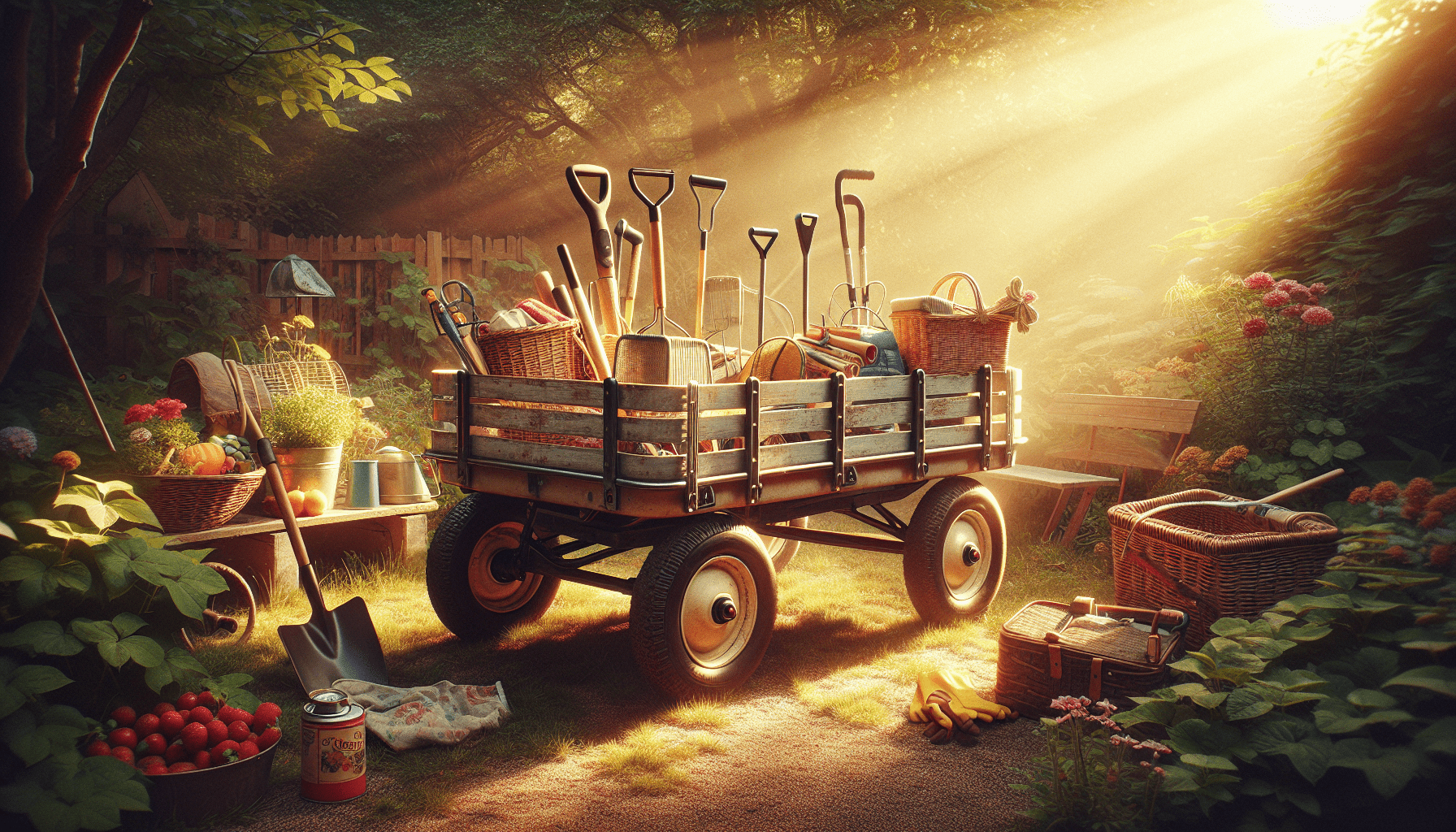Have you ever found yourself wondering how long a folding wagon typically lasts? It’s a valid question, especially when you consider the investment involved. Folding wagons can be incredibly useful, whether you’re using them for family outings, beach days, or transporting items around the yard. Understanding their longevity can help you decide when to invest in a new one or whether it’s time for repairs. Let’s break this down together.

Understanding Folding Wagons
Folding wagons are designed for convenience and versatility. They can be used to carry everything from kids and pets to garden supplies and camping gear. Their portable nature makes them a go-to choice for many families.
Materials and Construction
Isn’t it interesting how the materials used in these wagons can significantly impact their lifespan? Most folding wagons are made from a combination of metal frames and fabric. The fabric is often a durable polyester or canvas, which is chosen for its resistance to weather and wear.
The frame, typically made of steel or aluminum, provides strength and support. Aluminum frames are usually lighter, while steel frames tend to be sturdier but heavier. Each choice has implications on how long the wagon will last under various conditions.
Weight Capacity
One aspect you don’t want to overlook is the weight capacity. Each folding wagon has a specified weight limit, and exceeding that limit can lead to accelerated wear and tear. So, while it might be tempting to load your wagon to the brim for a beach day, keeping the weight within the recommended limits is essential to prolonging its life.
Factors Influencing Lifespan
When assessing how long a folding wagon lasts, there are several critical factors to consider. Let’s look at these together.
Frequency of Use
If you’re using your wagon daily to haul groceries or to transport kids to the park, you can expect the lifespan to be shorter than a wagon that’s only used occasionally. Regular use causes wear on the fabric and frame, making it crucial to understand your personal usage patterns.
Maintenance
Just like any other equipment, maintenance plays a significant role in extending the life of your folding wagon. Simple maintenance tasks can prevent larger issues down the road.
Environmental Conditions
Consider the environments your wagon is exposed to. If your wagon is frequently used in salty beach air or harsh weather conditions, the lifespan can be affected. Rains, snows, and extreme temperature fluctuations can lead to rust or deterioration in fabric.
Brand Quality
The brand you choose also significantly impacts how long your wagon will last. Some brands pride themselves on quality craftsmanship, while others may cut corners to lower prices. Researching different brands and reading reviews can help you make an informed decision.
Type of Folding Wagon
Did you know that the type of folding wagon can affect its longevity? There are several types of wagons available:
| Wagon Type | Description | Average Lifespan |
|---|---|---|
| Standard Folding | Basic wagon for light use | 3-5 years |
| Utility Folding | Designed for heavier loads and outdoor use | 4-7 years |
| Beach Folding | Lightweight, usually made for sand and shallow | 2-4 years |
| Garden Utility | Built for heavy garden use and materials | 5-8 years |
Seeing these differences can make it clearer why some wagons last longer than others.

Signs Your Folding Wagon Needs Replacement
Curious about the signs that indicate your wagon may need replacing? Here’s what to look for:
Visible Damage
If you notice tears in the fabric or dents in the frame, it may be time to consider a new wagon. The fabric is often what gives out first, making it essential to regularly check for wear.
Rust
For steel-frame wagons, rust is one of the most significant indicators of impending failure. If you see rust spots or peeling paint, the integrity of the frame may be compromised.
Difficulty Folding
If you’re struggling to fold or unfold your wagon, it could signal underlying issues. The hinges or joints might be wearing out, making it harder to use.
Unstable Movement
Your wagon should roll smoothly without wobbling. If you notice instability, it could suggest that the wheels or frame are failing, posing a risk to your belongings or passengers.
Maintenance Tips for Prolonging Lifespan
Let’s talk maintenance! Keeping your folding wagon in good condition can help extend its lifespan significantly. Here are some friendly tips to guide you:
Regular Cleaning
Dirt and debris can wear down the fabric and frame over time. A simple cleaning routine, using mild soap and water, can work wonders. After any outdoor usage, a quick rinse can help prevent the buildup of grime.
Proper Storage
Where do you store your wagon? Keeping it in a dry, cool place can prevent weather-related damage. Avoid leaving it outside, especially in harsh weather, to protect the materials and frame.
Periodic Inspections
Taking the time to inspect your wagon occasionally, especially before heavy use, can help catch potential issues early on. Look for frayed fabric, loose wheels, or any other signs of wear and tear.
Lubrication
If your wagon has moving parts, like wheels or hinges, periodic lubrication is essential. Using a silicone spray can keep everything running smoothly, preventing rust and wear.
Follow Manufacturer Guidelines
Each wagon comes with its maintenance guidelines. Make sure to follow these specific instructions to get the most out of your wagon over its lifespan.
When to Repair vs. Replace
Knowing when to repair a wagon instead of replacing it can be tricky. Here are some criteria to help you make that decision:
Cost of Repair
If repairs are significantly cheaper than purchasing a new wagon, it might be worth fixing. A new wheel or some fabric patches might breathe new life into your wagon.
Safety Concerns
If repairing the wagon compromises safety, such as if structural integrity is in question, it might be time to invest in a new one.
Age of the Wagon
If your wagon is nearing the end of its expected lifespan and you’re considering repairs, it might be wiser to invest in a new one.
Your Needs
Finally, consider whether your needs have changed. If your family has grown, or if you need a wagon with different capabilities, it may be time for an upgrade regardless of your current wagon’s condition.
Summary
Folding wagons can be a reliable tool for many different situations. Understanding their lifespan typically ranges from 2 to 8 years depends on several factors, including frequency of use, materials, and maintenance.
If you regularly clean your wagon, store it properly, and attend to minor repairs, you’ll significantly extend its useful life. Pay attention to the signs your wagon may need replacement, ensuring safety and functionality are priorities.
If you ever wonder about a specific brand or want to compare models, your best bet is to read up on user experiences. A well-chosen, well-maintained folding wagon can become a cherished item for many years and adventures to come. So when it comes to wagons, keep your eyes peeled for quality, care for it, and enjoy the ride!

